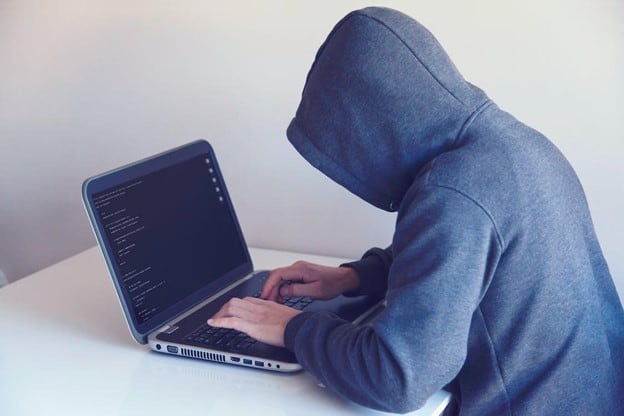
Did you know that 5.4 million malware attacks happened in 2021 alone? On top of that, there are over 100,000 viruses that could harm your laptop.
The threat is real, but there are ways to fight it.
If you stick to fundamental cybersecurity practices, your device and personal information should be safe. This guide shares the best tips on how to protect sensitive data and keep your laptop cyber-safe
Table of Contents
1. Update Your OS, Browsers, and Programs
Linux is more secure than macOS and Windows, but that doesn’t make it immune to viruses and malware. On the other hand, Microsoft does its best to keep you safe. To give you an idea, Windows has an integrated Windows Defender or Windows Security application that detects a malware, and they regularly roll out updates.
It’s vital to keep your OS up to date since the latest versions often contain important security patches. At the same time, make sure you have the newest version of the internet browser and other programs that you use. Hackers often exploit vulnerabilities in devices that are running on older software and inject viruses or malware into them.
2. Install Antivirus and Firewall
Windows has an integrated firewall that turns on automatically after installing the operating system. If you need an alternative, go with ZoneAlarm, Comodo Firewall, or GlassWire. A firewall checks all traffic coming and going from your network to prevent potential unauthorized access.
Your laptop also needs antivirus software. It’s a specialized tool that identifies and removes viruses and other malicious files. It’s vital to keep databases updated, so the tool can recognize the latest threats. If you want another security layer, install malware protection tools to detect and erase malware from your laptop.
3. Use a VPN
VPN is a Virtual Private Network that roots your internet activity via a secure and encrypted server. It helps to prevent anyone from compromising your internet privacy. VPN is essential when using public hotspots and shared networks if you want to avoid revealing your web activity info. And even if you are at home, it can’t hurt to add another security layer to the existing network.
Virtual private networks can help mask your real location while encrypting traffic and securing maximum anonymity. They offer hundreds of servers around the world that can help to bypass geographic restrictions while providing fast connections.
4. Set Strong Passwords
Passwords are the first line of defense against someone accessing your personal devices, accounts, and data. Experts recommend using a screensaver with an activated password protection option.
Here are some tips on choosing a strong password:
- Don’t use anything obvious. Your partner’s name and age, favorite sports team, and even sequential numbers aren’t a wise way to go.
- Stick to long passwords. They take longer to write, but 12-character or longer passcodes make things harder for hackers.
- Use password managers. They are an excellent way to ensure you don’t stay locked out of an important account.
- Use a mix of letters, numbers, and symbols. And don’t forget to combine upper and lowercase letters.
Passwords are necessary for emails, social media, and other accounts. If possible, add two-factor authentication (2FA). The additional security layer will improve the overall protection of sensitive info kept in that account.
5. Avoid Phishing and Other Scams
According to the National Cyber Security Centre, phishing occurs when cybercriminals try to trick you into “doing the wrong thing on the web.” That could include visiting shady sites, downloading malware, or tricking you into sharing sensitive info.
Some tips to help detect phishing or an internet scam:
- Check the sender’s email. The domain used for sending should be the one actually used by the company. For example, PayPal uses the domain “@paypal.com” and not “@mypaypal.com.” Even a single extra letter makes a difference.
- Look for typos and grammar mistakes. If the message looks like written by an amateur, it increases the odds that it could be a scam.
- Think twice before sharing sensitive info. Whether it’s completing a form or sharing your bank account number, make sure you only share it with a party you trust.
- Don’t rush with opening links and attachments. You can hover over links to see the alt text and confirm it matches the displayed text. As for attachments, only download them if you trust the sender.
6. Backup Your Data
You might have done everything right, but a persistent hacker found a way to insert a virus into your laptop. Before that happens, it’s wise to back up the essential data to ensure it stays safe. You can store it on Google Drive or any other cloud platform. Even copying sensitive documents to a USB stick is a viable option.
If a virus attacks, you might need to reinstall the operating system. Once you do, you’ll wipe the laptop’s entire hard drive. But thanks to the backup, it’ll be easy to recover important files. Backups could be vital if the device’s hardware breaks down. Even if you need to buy a new device, you’ll have critical data saved in a secure spot.
Final Thoughts
Whether you own a personal or business laptop, digital security is a serious concern. The combination of using updated software, protection tools, and secure network connections is the path to minimizing threats in the virtual world.
Applying top cybersecurity practices might take time and effort, but it will be worth protecting your laptop and sensitive info from unwanted access!

